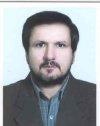| Authors | فریبا نظری سرنجه,پیمان هاشمی,حسین نعیمی,الهام ذاکرزاده,علیرضا قیاسوند |
|---|
| Journal | MICROCHIM ACTA |
|---|
| Page number | 2449 |
|---|
| Volume number | 183 |
|---|
| IF | 4.58 |
|---|
| Paper Type | Full Paper |
|---|
| Published At | 2016-06-11 |
|---|
| Journal Grade | Scientific - research |
|---|
| Journal Type | Electronic |
|---|
| Journal Country | Iran, Islamic Republic Of |
|---|
| Journal Index | ISI ,SCOPUS |
|---|
Abstract
The authors describe a method for magnetic solid phase extraction of uranyl ions from water samples. It is based on the use of spherical agarose-coated magnetic nanoparticles along with magnetic field agitation. The salen type Schiff base N,N’-bis(4-hydroxysalicylidene)-1,2-phenylenediamine was synthesized from resorcinol in two steps and characterized by infrared and nucleic magnetic resonance spectroscopies. The particles were then activated by an epichlorohydrin method and functionalized with the Schiff base which acts as a selective ligand for the extraction of UO2(II). Following preconcentration and elution with HCl, the ions were quantified by spectrophotometry using Arsenazo III as the indicator. The effects of pH value, ionic strength and amount of the adsorbent on the extraction of UO2(II) were optimized by a multivariate central composite design method. Six replicate analyses under optimized conditions resulted in a recovery of 96.6 % with a relative standard deviation of 3.4 % for UO2(II). The detection limit of the method (at a signal-to-noise ratio of 3σ) is 10 μg L‾1. The method was successfully applied to the determination of UO2(II) in spiked water samples.
